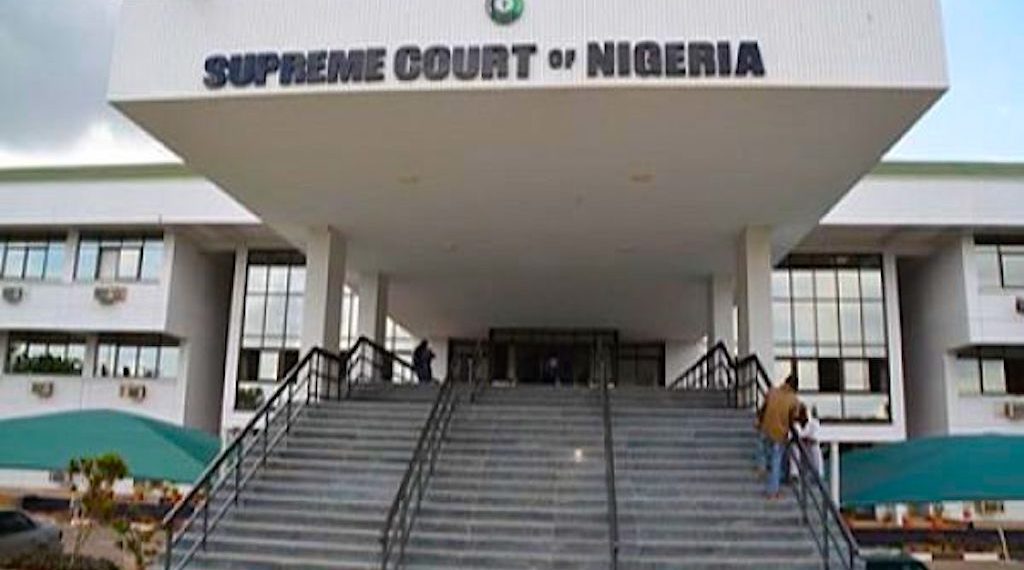
- Introduction
The Supreme Court of Nigeria is the last hope of the common man, the final stage of dispute resolution and a court whose decisions cannot be review except by legislative amendments. The Supreme Court, as the apex court in Nigeria, has limited original jurisdiction but very broad adjudicatory powers over all civil and criminal appeals from the Court of Appeal, the Legal Practitioners Disciplinary Committee (LPDC) and Presidential Election Petition Tribunal plays a crucial role in shaping the legal landscape and ensuring that justice is served efficiently. Over the years, the procedural framework governing Supreme Court proceedings has evolved very slowly tending to certainty of the court’s processes and ensure predictability.
Recognizing the need for greater efficiency, reduced case backlog, and modernization of judicial processes, the Supreme Court introduced the Supreme Court Rules 2024 to replace the 1985 Rules, which had governed the Court’s proceedings for nearly four decades. This transformation reflects the Supreme Court’s response to technological advancements, the need for faster case resolution, and a more streamlined judicial system.
The Supreme Court Rules 2024 introduces significant changes aimed at expediting litigation, enhancing access to justice, ensuring greater transparency, and integrating modern technologies into the apex court processes.
- Key Innovations in the Supreme Court Rules 2024
The Supreme Court Rules 2024 mark a significant stride from the previous procedural framework by incorporating a total of 22 Orders, 216 Rules and 37 Forms (under the First Schedule) as well as the Table Fees in Civil Matters (under the Second Schedule) that regulate the appeal process before the apex court. It is important to note that the wordings of the Rules is simple, judicial interpretation may differ in the future depending on the set of facts before the court and the need to do substantial justice.
Below is a comparative analysis of some of the most critical provisions.
2.1 General Definition (Order 1 of 2024 Rules of 2024 Rules)
One of the first notable changes introduced by the 2024 Rules is the expansion of definitions under Order 1. Unlike the 1985 Rules, which provided limited definitions, the new rules explicitly define key legal terms such as Act, Appeal, Appellant, Applicant, Bailiff, Cause, Chief Justice, Presiding Justice, Justice, Chief Registrar, Registrar, and Registrar of the Court Below.
For instance, Order 1 Rule 3 of the 2024 Rules defines an Appeal as the entry of an appeal after the record of appeal has been transmitted from the court below. In contrast, Order 1 Rule 2 of the 1985 Rules provided a more limited definition, simply describing an appeal as an application for leave to appeal.
2.2 Service of Notice of Appeal (Order 3 of 2024 Rules)
The 2024 Rules introduce stricter obligations for legal practitioners who no longer represent a party. Under Order 3 Rule 3, a lawyer who has ceased to act for a party but is still served with a Notice of Appeal or any other process must inform the Registrar within seven (7) days. Failure to do so may result in penalties, including an order to pay costs and potential disciplinary action for professional misconduct.
This provision ensures clarity in legal representation and prevents unnecessary procedural delays.
2.3 Applications to the Court (Order 4 of 2024 Rules)
The process for bringing applications before the Supreme Court has been revised to ensure speed and procedural efficiency.
Order 4 Rule 1 mandates that every application must be made by motion on notice, specifying the rule under which it is brought, the grounds for the relief sought, and must be supported by an affidavit and a written address. Notably, the written address in support of the motion must now be limited to Ten (10) pages for brevity and clarity. Respondent, who wishes to oppose the motion, has fourteen (14) days to file their response, while the applicant has seven (7) days to file a reply on points of law, if any.
There is a grave penalty for tardiness under the 2024 Rules in contrast to the 1987 Rules. Where the time prescribed for filing certain court process expires, Order 4 Rule 15 provides an automatic extensions of time for doing so, with penalties for delays beyond the prescribed period. However, applications for extension of time beyond the second instance will not be entertained except in cases involving a death sentence appeal.
2.4 Time for Transmission of Record of Appeal in Civil and Criminal Proceedings (Order 6 of 2024 Rules)
The 2024 Rules introduce both physical and electronic copies as mandatory components of the record of appeal.
Order 6 Rule 4 of the 2024 Rules has reduced the timeframe for transmitting the record of appeal from six (6) months under the 1985 Rules to three (3) months. This change ensures faster commencement of appellate proceedings and aligns with modern best practices.
2.5. Punitive Costs (Order 12 of 2024 Rules of 2024 Rules)
This provision is one of the most fundamental efforts by the Supreme Court to discourage undue delays and frivolous appeals by litigants. Under Order 12 Rule 4, the new rules introduce structured cost implications for civil appeals to deter frivolous applications:
- ₦2,000,000 minimum cost awarded to a successful party in a civil appeal.
- ₦1,000,000 minimum cost for delaying an appeal hearing.
- ₦500,000 minimum cost for applications heard in open court.
- ₦2,000,000 minimum cost for abuse of court process.
These provisions act as deterrents against unnecessary delays and frivolous litigation. In deserving cases, the Supreme Court can award the above costs against litigants and/or their lawyers to be paid within 90 days without which the affected lawyer will lose right of audience before all other courts in Nigeria.
2.6. Brief of Argument (Order 16 of 2024 Rules)
The Supreme Court Rules 2024 introduce significant modifications to the timeframe and format for filing briefs of argument. These changes are aimed at improving efficiency, ensuring clarity, and streamlining appellate proceedings.
Reduction of Timeframes for Filing Briefs
Under Order 16 Rule 2 of the 2024 Rules, an appellant’s brief must be filed within 45 days from the date of receipt of the record of appeal. This is a significant reduction from the 1985 Rules, which permitted an appellant 10 weeks (approximately 70 days) to file the brief.
Similarly, Order 16 Rule 4 reduces the timeframe for filing a Respondent’s brief to 30 days from the date of service of the appellant’s brief. This is a marked reduction from the 8 week period (approximately 56 days) provided under the 1985 Rules. Furthermore, an appellant now has 14 days to file a reply brief, ensuring a faster appeal process.
Stricter Formatting Requirements for Briefs
With regard to the format of briefs, the 2024 Rules introduce detailed formatting requirements and size of briefs of argument. Under Order 16, written briefs must meet the following requirements:
- It shall not exceed 45 pages,
- Be legible and well-bound,
- Be prepared in 210mm by 297mm paper size (A4-sized paper),
- Use a font type of Arial, Times New Roman, or Tahoma,
- Be in 14-point font size,
- Maintain at least 1.5 spacing between.
Furthermore, all parties with identical interests must file joint briefs, and briefs that fail to comply with format requirements will not be accepted.
The 2024 Rules allow the Supreme Court to dismiss such appeals suo motu (on its own motion) in Chambers with or without a formal application.
2.7 Electronic Filing (Order 17 of 2024 Rules of 2024 Rules)
A groundbreaking reform is the introduction of mandatory electronic filing via the NCMS E-Filing Portal.
Order 17 Rule 1 makes the provision of E-Filing of any applications, documents, and processes after which a date is set by the Chief Justice for hearing.
Order 17 Rule 4(2) empowers the Chief Justice to issue Practice Directions regulating electronic filings periodically.
This innovation aligns the Supreme Court with global best practices in digital case management.
2.9. Filing Fees (Order 5 and 2nd Schedule of the 2024 Rules)
The costs of filing court process have ben reviewed upwards with significant increase in both original and appellate jurisdiction as well as general court filings. For instance the costs of every volume of record from the court is N50,000 (this is a huge cost when multiplied by the number of volumes of record to produce, usually 14 or more), filing cost for a notice of appeal is N20,000 whilst motion for leave to appeal is N15,000 whilst briefs of argument is N22,000. The cost of filing motions range from N5,000 to N25,000 depending on the nature of motion. Please note that motions, affidavits and written addresses are all charged separately.
It is now common to get fee assessment of over N2,000,000 as filing cost of court process at the registry of the Supreme Court, a significant different difference from the costs under the 1985 Rules.
2.9 Virtual Hearing (Order 18 of 2024 Rules of 2024 Rules)
Recognizing technological advancements, the 2024 Rules allow for virtual court proceedings.
Order 18 Rule 1 permits the Court to conduct hearings virtually suo motu or upon a party’s application.
Order 18 Rule 8 empowers the Chief Justice to issue Practice Directions for regulating virtual hearings periodically.
This provision is a progressive step towards enhancing access to justice and reducing delays associated with physical court appearances.
3.0. Conclusion
The Supreme Court Rules 2024 represent a significant stride in addressing some of the long-standing challenges stalling the progress of appeals while incorporating contemporary technological advancements. It is believed that these reforms will foster speedy hearing of appeals, better case management, enhanced access to justice, and greater transparency and accountability amongst litigants.



